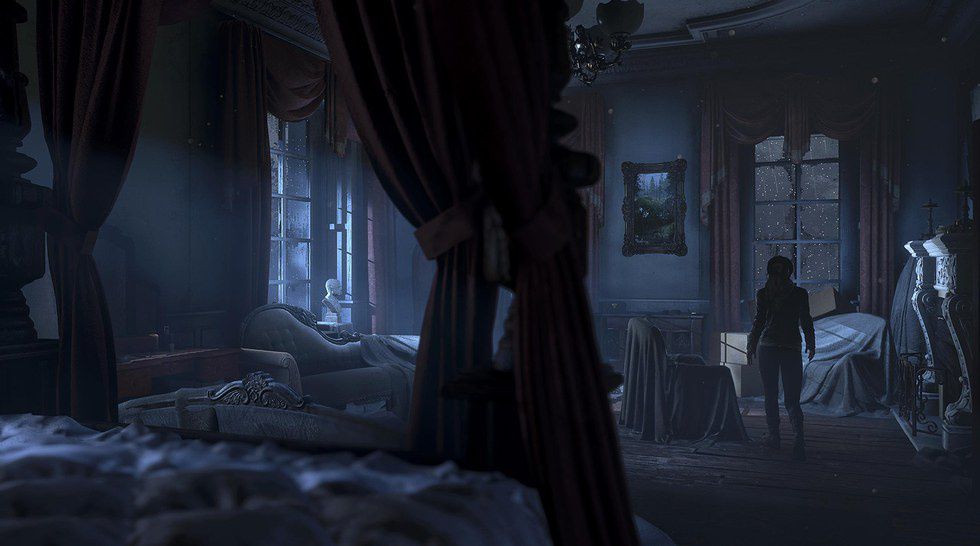Lara's triumphant return has finally made it out of its timed exclusivity and onto PlayStation 4, but the best part isn't actually the main campaign. Instead, a more powerful story, though quiet, lives on in the title's optional DLC chapter, Blood Ties.
Blood Ties takes away the heightened anxiety of combat for a melancholic tale about Lara's roots. Through the main campaign, the true fate of Lara's father is revealed and Blood Ties serves to wrap up all the loose ends regarding the other half of her family - her mother.
Where there aren't any enemies within the Blood Ties campaign, it manages to keep the blood pumping through something a little more sinister: Lara's uncle Atlas. The short chapter begins with a threatening letter from her distant family member, claiming she has no rights to her family's home Croft Manor. Of course, staying true to her fighting spirit, she sets out to solve the mysteries of her home and find her father's will.
This chapter is almost strictly told through relics and documents. Old letters and recordings from Lara's mother and father, notes to her father from the family butler Winston and various treasures from her father's expeditions. All of them are hidden in fairly obvious places and it's worth finding all 54 documents or so - from the undying passion Lord Croft had for his work and family, to the struggles he faced in an attempt to heal. Each one shows a family forming through unconditional love, struggling with death and healing from the loss they faced.
In the 2013 reboot of "Tomb Raider," we saw Lara go from an eager girl seeking to follow in her father's footsteps to a battle-hardened survivor. "Rise of the Tomb Raider" follows her life after that transformation and her desire for answers, but Blood Ties recreates her once again. Instead of the woman constantly having to belt out a battle cry, we see a facet of that woman who has her heart cracked in all the right places. For the first time, her character is on full display, not out of fear and survival, but out of grief.
Yet again, we're shown that Lara isn't just a video game icon, but rather a representation of strength through vulnerability. Sure, a lot of Lara's tales are unrealistic, but Blood Ties presents a real life situation actual people have to survive. Her's is the memoir of a family who shut down to cope: of a man who regretted drowning himself in his work and desperately tried to reverse the outcome; of a child who couldn't really understand what was happening and watched sorrow slowly eat away at her world. For just a moment, we see a bit of Lara's blissful innocence return and watch it bud into a form of closure she so desperately needed.
Blood Ties' story is humbling in the sense that it discusses the acceptance of the past and the ability to move forward from it. By revisiting her crumbling mansion, Lara's war-torn soul gets a chance to play with her innate, childhood innocence. As if they walk hand in hand, memories become reality, and that reality becomes yet another much more bittersweet memory.






















